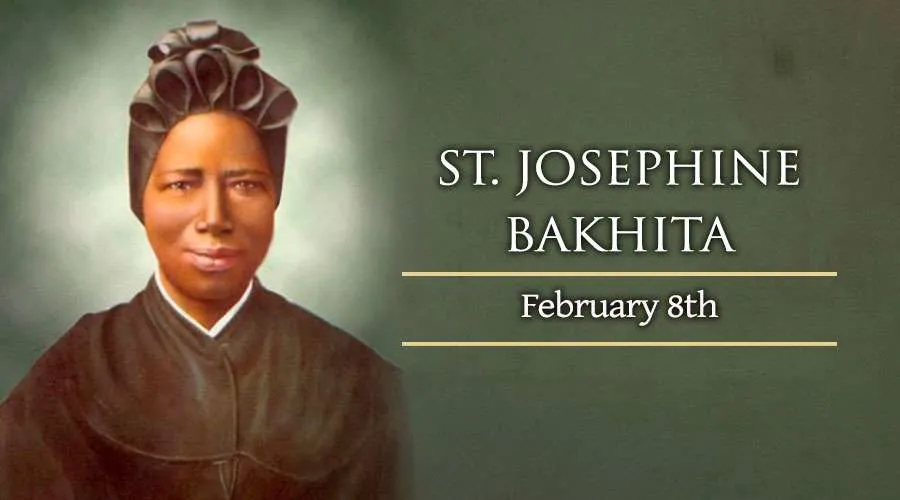Sub-Saharan Africa, 08 February, 2025 / 3:15 am (ACI Africa).
Josefina Bakhita was born in Sudan (Africa) and lived through slavery for much of her life. The name Bakhita, which means "fortunate," she obtained through her captors at age 9, and Josefina's, twelve years after her when she received her baptism.
"If I met again those slave traders who kidnapped and tortured me, I would kneel to kiss their hands because, if this had not happened, now I would not be Christian and religious", are the remembered words of the saint who became an icon of the history of Africa.
Bakhita is said to come from the Darfur village of Olgossa and may have been born in 1869, something that even she did not know for sure. She lived with her parents and siblings until the day some slave traders captured her in the forest. She was taken to a city called El Obeid, where she was sold to the first of a total of five masters.
With whom she most suffered humiliation and torture she was her with her fourth master, when she was approximately 13 years old. She was tattooed, 114 incisions were made, and to avoid infections they put salt on her for a month. "She felt that she was going to die at any moment, especially when the salt was put on me," she says in her biography.
In 1884 Josefina arrived in Italy accompanying her fifth master and a friend of his, Augusto Michieli. This friend later became her new owner and took her to live with her family.
Bakhita worked as a babysitter in her new home and became close friends with the daughter of her new masters, Minnina. Later both entered the novitiate of the Institute of the Sisters of Charity in Venice, on the advice of the nuns.
It was in this process that she Bakhita met God and she knew that "He had remained in her heart" and had given her the strength to endure slavery, "but only at that moment did she know who she was" .
On January 9, 1890, she received baptism, first communion, and confirmation. From that moment on she took the Christian name of Josefina Margarita Afortunada.
She passed the time and the African nun decided to stay in Italy - because slavery was illegal - and she later became one of the sisters of the order on December 7, 1893, at 38 years of age.
In 1902 she was sent to Venice to work cleaning, cooking and caring for the poorest. She never performed miracles or supernatural phenomena but she had a reputation as a saint. She was always modest and humble, she kept a firm faith inside of her and always fulfilled her daily obligations.
Because of her spirituality and her strength in the face of her adversities, Saint John Paul II called her "Our Universal Sister", and her life story was actually the story of an entire continent. Bakhita passed away on February 8, 1947 in Schio and thousands of people came to say goodbye to her.
In 1978 she was declared venerable and Saint John Paul II beatified her in 1992, declaring her day of worship on February 8. Finally the same Pontiff canonized her in 2000, during her Jubilee, which meant a reason for honor for the African people, for all the Christians and women who suffered from slavery.
In 2007 Pope Benedict XVI used the example of life of Saint Josephine Bakhita in his encyclical Spe Salvi to speak of hope.






